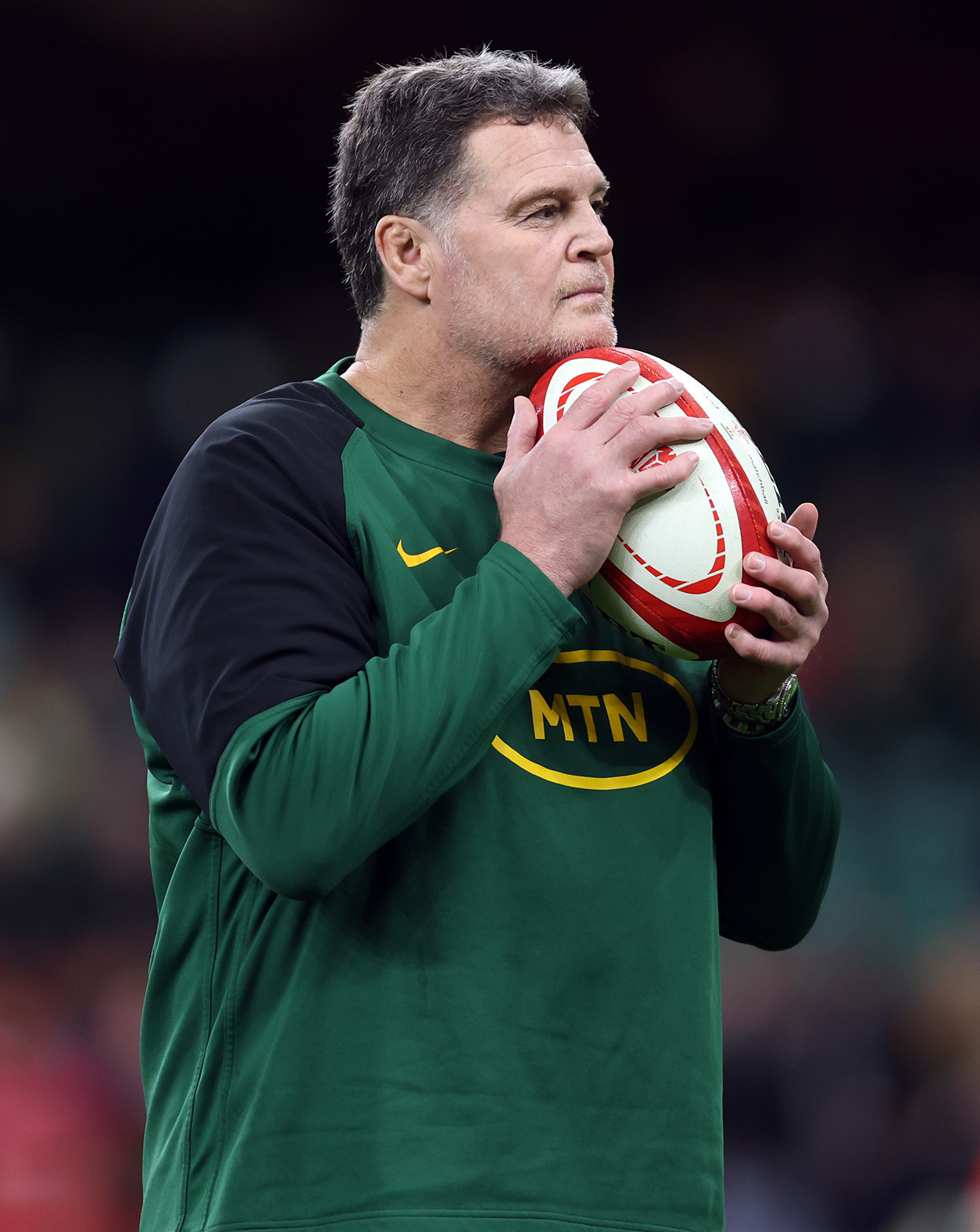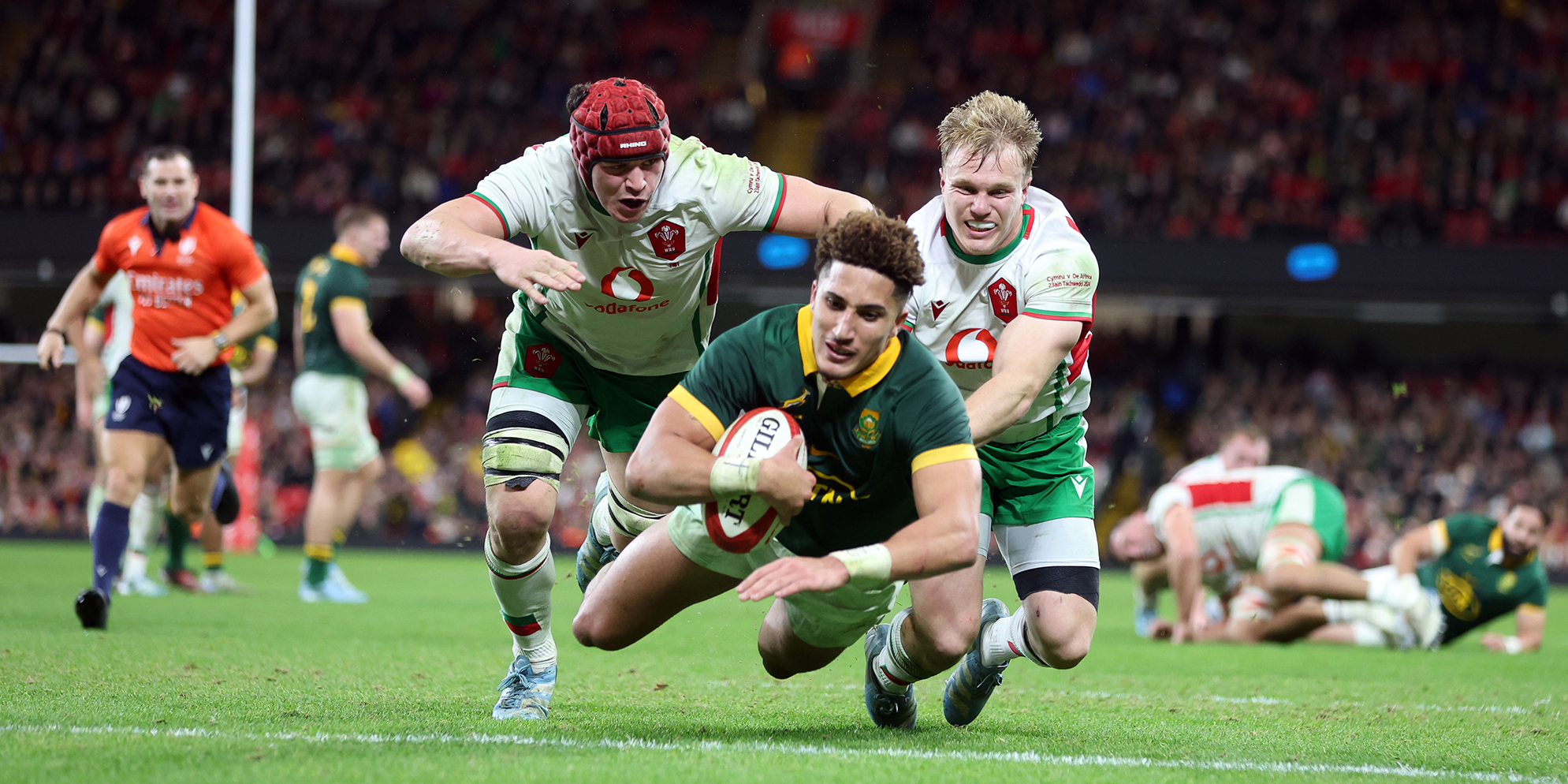Is the current Springbok team the best South Africa has ever produced? Probably. Is this the greatest team of all time, in all of rugby? Probably not.
That accolade must still sit with the 2011-2015 All Blacks, who also won back-to-back World Cups, took three Rugby Championship titles and won 41 of 46 Tests, only losing three, with two draws.
However, this generation of Springboks is the deepest, most significantly versatile squad in the history of the sport. There has never been a time when an international coach has used 50 players in a season and won 85% of their Tests. Eleven wins out of 13 Tests — and the two defeats were by a single point each.
This squad of Boks might have been regarded as the best rugby team of all time had their sole outlook in every match been the result. If winning was the first and last thing on the list of importance, they might have had a 100% winning record this season.
However, coach Rassie Erasmus always looks at the bigger picture. Risks and the chance of losing are acceptable trade-offs if it means building depth and discovering a player’s worth — whether he has it or not — for the primary goal of winning World Cups.
 Rassie Erasmus. (Photo: Steve Haag Sports / Gallo Images)
Rassie Erasmus. (Photo: Steve Haag Sports / Gallo Images)
The exercise of deciding the best team of all time is futile anyway. The 1937 Boks must be in the conversation as must the 1996 All Blacks. Even England’s 2001-2003 generation could have an argument.
It doesn’t matter. The reality is that the Boks playing in this era have clear objectives, underpinned by a significant understanding of what they need to do to achieve them.
Authenticity
What works for Erasmus and his Boks might not work for the All Blacks or France. This is what makes this generation even more special — they are authentic and true to their own core values and concepts about the game.
Erasmus has no doubt borrowed bits and pieces from all parts of the rugby world as part of his overall strategy. Having international coaches such as New Zealander Tony Brown and Irishman Jerry Flannery in the coaching group indicates that.
Yet, it’s the overriding authenticity of knowing what makes South African rugby and South African rugby players work that defines this era.
Erasmus and captain Siya Kolisi have a way of tapping into the emotional state of the players to ensure that they understand everything asked of them is not whimsical. It is underpinned by a clear strategy.
 Siya Kolisi after the match against Wales on 23 November. (Photo: Steve Haag Sports / Gallo Images)
Siya Kolisi after the match against Wales on 23 November. (Photo: Steve Haag Sports / Gallo Images)
That makes it easier for a player to swallow when they’re asked to miss a Test the week after producing a man-of-the-match performance. Ego is a huge part of what drives top sportspeople. Knowing when to check that ego in at the door is what separates the good from the great.
Because Erasmus has sold the concept of tinkering to the squad, with the main objective of winning a third straight Rugby World Cup title in 2027, the depth chart is unparalleled in the sport’s history.
“I was worried at first about how the players will take the swapping, but we were honest with them at the beginning of the season, and they all bought into the plan, which is admirable,” said Erasmus after Saturday’s 45-12 win over Wales.
“We also got a new attack and defence coach this year [Tony Brown and Jerry Flannery, respectively] and the way they slotted in and assisted the team was fantastic.
“We are satisfied with the scoreboard [against Wales] and the year in general. And one must applaud the players for their effort, especially since we made so many changes.
“It’s rewarding that we were able to finish the year using 50 players. We lost rhythm at times, but the way Siya [Kolisi] and the other leaders kept the group together was special.”
Power in versatility
This Bok squad has up to three world-class players in every position. Within that, Erasmus has moulded a squad of utility players to match the demands of the modern game.
Flank Marco van Staden can play hooker if needed and wing Cheslin Kolbe can cover fullback, scrumhalf and flyhalf. Thomas du Toit is devastating at loosehead or tighthead. Kwagga Smith can play in any position in the back row and also cover wing or centre.
Jesse Kriel is a sublime centre and an excellent wing — ditto Lukhanyo Am. Kurt-Lee Arendse is at ease on either wing and fullback, as is Canan Moodie, with the add-on of being a fine outside centre.
Handré Pollard is not only a flyhalf, but a 12, and Jordan Hendrikse is a quality fullback in addition to being a top flyhalf, as he showed against Wales at the weekend. Aphelele Fassi has nailed down the fullback berth but wouldn’t look out of place in the wing.
Grant Williams might be the Boks’ best scrumhalf at the moment and he is possibly one of the top four wings as well, while Pieter-Steph du Toit is the best blindside flank in the world and maybe the best No 5 lock too.
Franco Mostert would argue with Du Toit about being the best No 5 when he is fully fit, but Mostert can also command a place at blindside flank.
What about Damian Willemse and Sacha Feinberg-Mngomezulu, who cover three backline positions and kick for goal? Extraordinary.
And the players who are only considered in one position, such as hookers Malcolm Marx and Bongi Mbonambi, tighthead Frans Malherbe, scrumhalf Faf de Klerk, centre Damian de Allende and lock Eben Etzebeth. Those names are simply totemic in the history of Bok rugby.
What of the attacking genius of Willie le Roux and the power and subtle skills of RG Snyman and André Esterhuizen, who are vital pieces of the overall jigsaw?
We haven’t even got to Ruan Nortjé, Gerhard Steenekamp, Johan Grobbelaar, Jaden Hendrikse, Makazole Mapimpi and the returning Steven Kitshoff.
When you strip back everything, it gets even more frightening for opponents, because 2024 was always going to be a year of transition and evolution.
Mistakes were expected, and made. The objective is to be better and more settled in 2025. That is both exciting and terrifying, depending on your perspective. DM
Results in 2024
- 22 Jun – SA 41 Wales 13 (London)
- 6 Jul – SA 27 Ireland 20 (Pretoria)
- 13 Jul – SA 24 Ireland 25 (Durban)
- 20 Jul – SA 64 Portugal 21 (Bloemfontein)
- 10 Aug – Australia 7 SA 33 (Brisbane)
- 17 Aug – Australia 12 SA 30 (Perth)
- 31 Aug – SA 31 New Zealand 27 (Johannesburg)
- 7 Sep – SA 18 New Zealand 12 (Cape Town)
- 21 Sep – Argentina 29 SA 28 (Santiago del Estero)
- 28 Sep – SA 48 Argentina 7 (Nelspruit)
- 10 Nov – Scotland 15 SA 32 (Edinburgh)
- 16 Nov – England 20 SA 29 (London)
- 23 Nov – Wales 12 SA 45 (Cardiff)




 Siya Kolisi after the match against Wales on 23 November. (Photo: Steve Haag Sports / Gallo Images)
Siya Kolisi after the match against Wales on 23 November. (Photo: Steve Haag Sports / Gallo Images) 